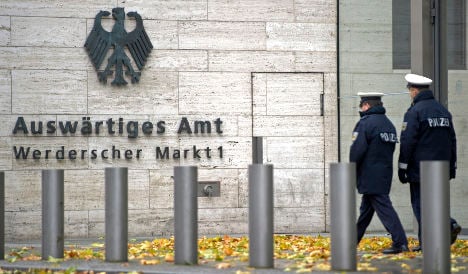A diplomat was arrested on May 21 on suspicion of selling visas for Germany to people from Afghanistan. The 40-year old had been head of Germany’s visa office in the Gulf state of Dubai.
Investigators are now also looking at some 20 different cases in embassies and consulates in 12 different countries, although they say that there is no indication yet that these cases are related to that of the diplomat.
According to Der Spiegel magazine, for the past four years the career diplomat had allegedly been issuing visas to Afghan citizens, based on fake documents provided by a company based in the Emirates. Dubai airport is an important transit stop for Afghans who want to travel to Europe.
The price for each visa was up to $3,000 in cash. The man was arrested while on leave in Berlin and his alleged client, an Afghan business man, was arrested in Hamburg.
The Berlin State Prosecutors Office has confirmed that they are now looking into 20 cases relating to the issuing of visas. The charges are bribery, corruption and human trafficking.
There are thought to have been irregularities at German diplomatic missions in 12 countries, including the United Arab Emirates, Afghanistan, Egypt, Azerbaijan and Kazakhstan.
A spokesperson for the prosecutors said that there were dozens of suspects, most of whom were locally employed workers at German embassies and consulates.
The Local/DPA/smd




 Please whitelist us to continue reading.
Please whitelist us to continue reading.
Member comments